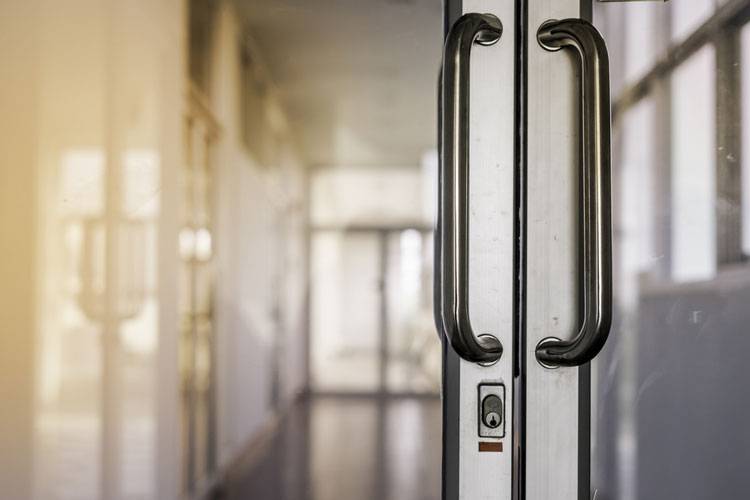Locks play a vital role in securing commercial buildings, and choosing the right type of lock is crucial. With so many different types of locks available on the market, it can be overwhelming to determine which ones are best suited for commercial use. In this blog, we will explore the proper locks and characteristics for commercial buildings.
- Deadbolts
Deadbolts are the most commonly used type of lock for commercial buildings. They provide an additional layer of security because they cannot be opened with a credit card or any other tool. Deadbolts come in a variety of styles, including single-cylinder, double-cylinder, and jimmy-proof. Single-cylinder deadbolts use a key on one side and a thumb turn on the other, while double-cylinder deadbolts use a key on both sides. Jimmy-proof deadbolts are surface-mounted, making them less susceptible to tampering.
- Smart Locks
Smart locks are a popular option for commercial buildings because they offer convenience and security. These locks use electronic mechanisms to unlock the door, typically via a smartphone or access card. Smart locks can be programmed to allow access only during certain hours, making them an ideal choice for businesses with varying schedules. They can also be remotely monitored and controlled, making them ideal for multi-site businesses.
- Mortise Locks
Mortise locks are ideal for commercial buildings because they are durable and resistant to tampering. They are commonly used in high-traffic areas such as retail stores and hospitals. Mortise locks feature a deadbolt and a latch bolt, making them highly secure. They are also highly customizable, allowing businesses to choose from a range of finishes and handle styles.
- Padlocks
Padlocks are commonly used for outdoor applications, such as securing gates and storage sheds. They come in a variety of sizes and materials, including brass, steel, and aluminum. Padlocks can be keyed alike, making it easier to manage multiple locks.
- High-Security Locks
High-security locks are ideal for commercial buildings with valuable assets or sensitive information. These locks use advanced technologies such as key control, pick-resistant cylinders, and drill-resistant materials. High-security locks are often used in financial institutions, government buildings, and research facilities.
When choosing a lock for a commercial building, it’s important to consider the following characteristics:
- Durability – The lock should be durable enough to withstand high traffic and harsh weather conditions.
- Security – The lock should be resistant to tampering and picking.
- Accessibility – The lock should be easy to use and access by authorized personnel.
- Convenience – The lock should provide convenience and flexibility for users.
- Customizability – The lock should be customizable to meet the specific needs of the business.
In conclusion, choosing the right locks for a commercial building is crucial for ensuring the safety and security of the occupants and assets. Deadbolts, smart locks, mortise locks, padlocks, and high-security locks are all viable options depending on the specific needs of the business. When selecting a lock, it’s important to consider the characteristics of durability, security, accessibility, convenience, and customizability. With the proper locks in place, commercial buildings can provide a safe and secure environment for all occupants.

